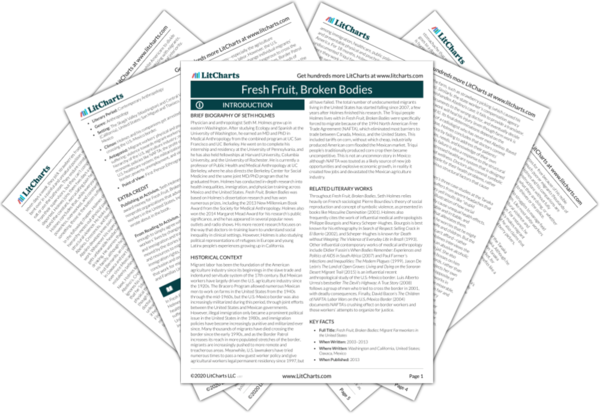Samuel is one of Holmes’s closest Triqui friends at the Tanaka Brothers Farm. Holmes stays with Samuel and his extended family in his hometown of San Miguel, as well as in California’s Central Valley during the winter. His experience is relatively typical of the Triqui migrants who work on farms in the United States. Through his friendship with Samuel, Holmes learns about the undocumented people’s struggle to find housing in the United States, the racist discrimination they face from local white residents there, and the violence and poverty that force Triqui people to leave Oaxaca in the first place.
